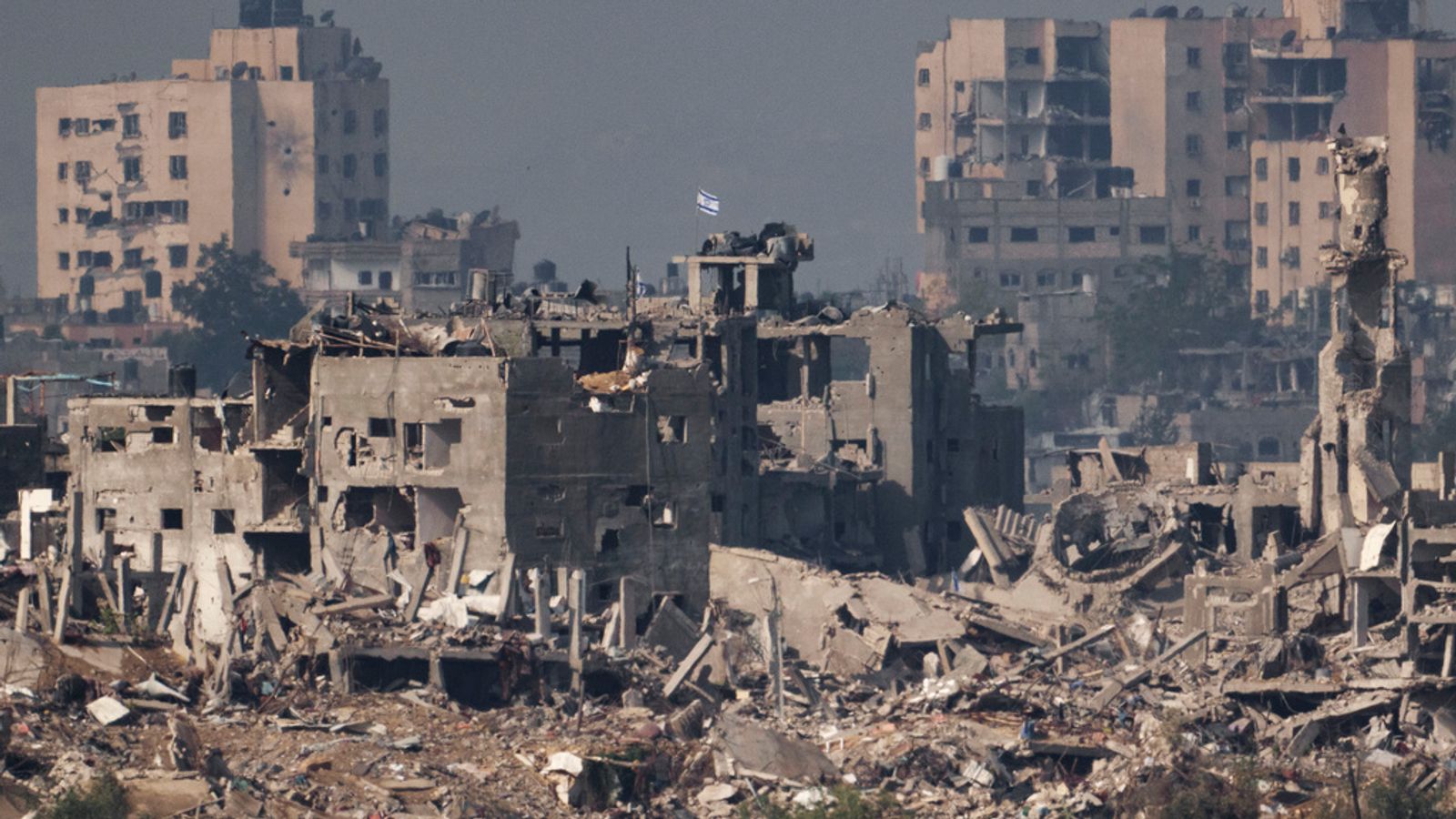Israel is approaching the end of the first phase of its operation in Gaza and with it comes a dilemma.
“You break it, you own it,” US secretary of state Colin Powell warned President Bush ahead of the invasion of Iraq in 2003, quoting signs in US department stores meant for customers.
The same principle applies to Israel with northern Gaza. Sporadic fighting goes on but it effectively controls the top third of the territory and has comprehensively broken the area as a place to live.
Israel has its reasons for flattening it. It says it has used artillery and air strikes “professionally” to protect its soldiers and that ultimate blame lies with Hamas.
But either way, it has pulverised most of the zone it now occupies to rubble and is well on the way to erasing Gaza City from the map.
So what does it do with the smouldering ruins?
Follow live: Biden warns Israel of ‘big mistake’ after war
Israel doesn’t look like it wants to own what it has broken. It has not followed its military campaign with any largescale humanitarian operation, though it has a duty to do so.
Israeli spokesman Mark Regev has told Sky News this is not the time for that, with fighting still going on. But that seems disingenuous.
It is clear that any fighting in northern Gaza is increasingly limited and largely confined to night-time. More importantly there are no signs of Israel preparing such a humanitarian mission.
Mr Regev estimates a million people have now moved south on the Israeli military’s urging.
Inside Gaza our correspondent Mark Stone and his cameraman Richie Mockler have documented what that looks like.
They’ve witnessed utterly miserable scenes belonging to another century as Palestinians line up to file away from their completely devastated neighbourhoods.
Please use Chrome browser for a more accessible video player
By Mr Regev’s figures, that leaves an estimated 200,000 people behind.
Israel is now the occupying force in northern Gaza. Under the rules of law it has obligations to the civilian population whose homes it has utterly broken. So far, it says it has brought in 300 litres of fuel, boxes of medical aid and a few incubators.
That is the here and now. Israel faces an even bigger dilemma over what it does next.
It could call it quits and give up what it’s broken. There’s talk of pulling out, leaving Arab neighbours and the West to put Gaza back together. But that could leave the field clear for Hamas to return, as it has every time in the past. Israeli Prime Minister Benjamin Netanyahu has promised this time to destroy it for good.
His political survival depends on it.
It could double down. Hamas forces still prevail in two thirds of the Gaza Strip. If Israel is serious about eradicating its threat it will need to go after them. But really? In an area already one of the most densely populated on Earth that’s now been swelled by another million? It seems inconceivable, even if the mission remains Israel’s stated war aim.
Or there’s a halfway house. Staying in, but only in the north and not pressing south.
Read more:
Inside Gaza’s ‘humanitarian corridors’
Labour frontbenchers quit over Gaza ceasefire vote
Village caught in crossfire ‘could turn into battlefield’
Please use Chrome browser for a more accessible video player
Mr Netanyahu insists Israel will keep control of security in Gaza which implies a lasting presence on the ground of some sort.
That will suit his far-right partners in government just fine because it destroys even further the chances of a viable Palestinian state, something they vehemently oppose.
But in Washington the Biden administration is warning against anything approaching reoccupation because it jeopardises the only hope for peace in the region, however remote, that ever elusive two-state solution.
Read more:
What is the two-state solution for Israel and Palestinians?
Potential donor countries whose support could rebuild Gaza want the same. They will demand signs of progress towards peace before pouring in the billions needed to rebuild broken Gaza.
A divided, destroyed Gaza, still under Israeli occupation, may satisfy Mr Netanyahu’s far-right partners in government for their own ideological reasons. But the Biden administration won’t tolerate that outcome for long.
Israel relies on America for military aid and diplomatic support and cannot afford to alienate its patrons indefinitely.
Mr Netanyahu relies on his far-right partners to stay in power.
Patrons and partners. Israel’s leader cannot please both and will need to choose between them sometime soon.








